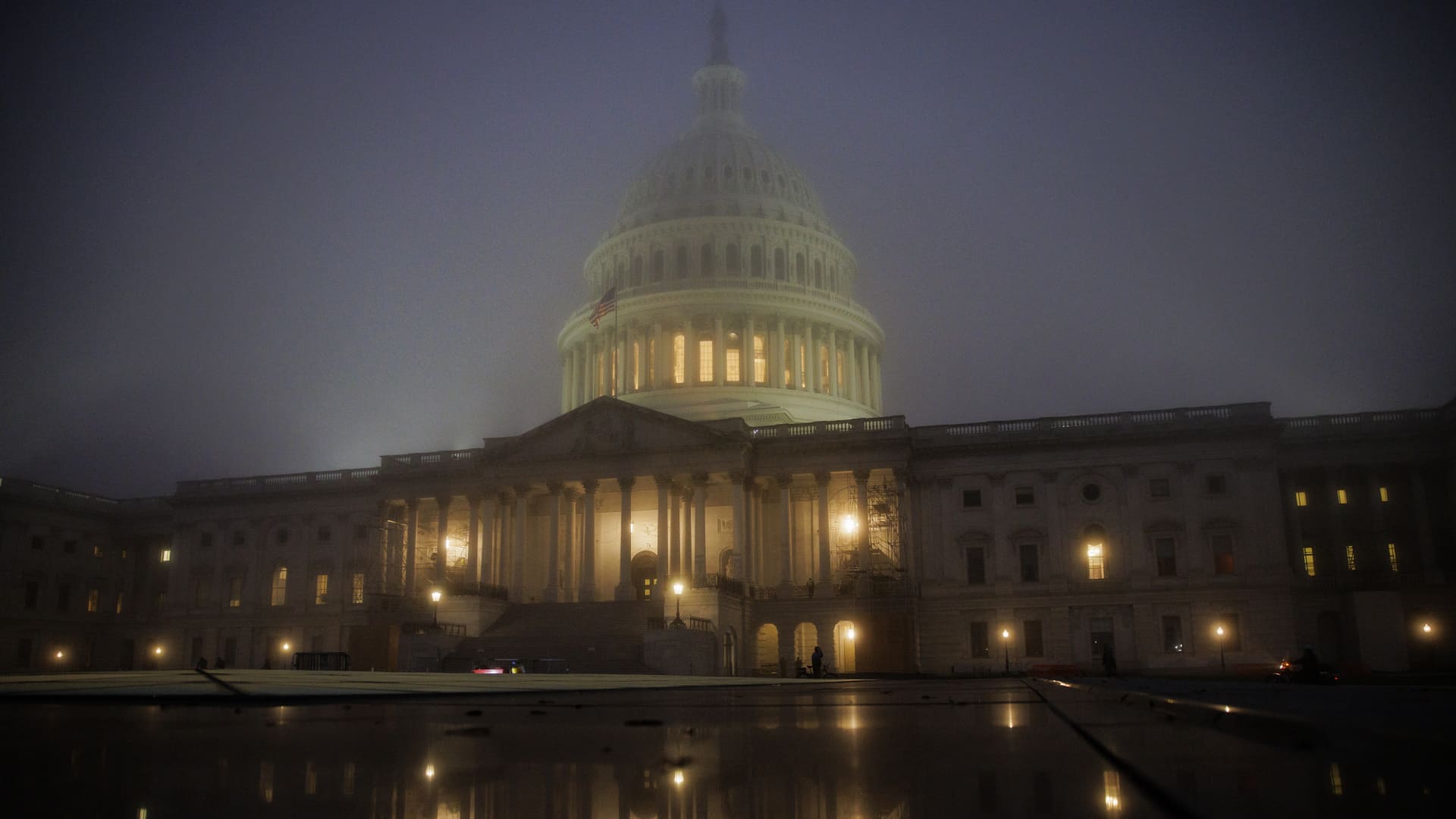
The question of which political parties control one or both chambers of Congress for the next two years could take until early December to sort out, especially in the Senate where one of the races is headed for a runoff.
Whether Republicans have managed in the midterm elections to narrowly wrest majority control away from Democrats in the U.S. House of Representatives could be resolved within the coming days as ballots are processed in 11 states.
Republicans are projected to win 220 seats in the House, two more than the 218 needed to take the majority, while Democrats look like they will take 215 seats as of Friday morning, according to NBC News. That estimate has a margin of error of seven seats. And election officials are still counting ballots in at least 27 races as of Friday morning.
That final seat tally could be prolonged, though, if one or more of the House races is so close it triggers a recount.
As of Friday morning, three days after polls closed around the nation, three seats in the Senate had yet to have winners projected by NBC News.
All three of those seats, in Arizona, Georgia and Nevada, are currently held by Democrats.
The outcome of those races will determine if Democrats retain the slimmest possible majority in the Senate, with the potential to actually increase the majority slightly.
While the results of Senate races in Arizona and Nevada could both be known by next week, Georgia is headed to a runoff special election on Dec. 6, because neither of the major party candidates garnered more than 50% of the vote.
Currently, there are 48 Democratic senators and two independents who caucus with them, compared with 50 Republican senators who make up the remainder of the chamber.
Democrats hold the majority there since Vice President Kamala Harris has the power to break ties as president of the Senate.
To maintain that control starting in January, Democrats need to win at least two of the three elections that haven't been called yet.
The party gained some breathing room after Pennsylvania's Democratic Lt. Gov. John Fetterman defeated GOP contender Dr. Mehmet Oz for the Senate seat being vacated by Republican Sen. Pat Toomey, who is retiring.
"Like all of you, I'm just watching and waiting for them to finish counting the votes," Senate Minority Leader Mitch McConnell, R-Kentucky, told reporters Thursday. McConnell is favored to become majority leader, again, if Republicans win at least two of the remaining Senate races
In Arizona, incumbent Democrat Mark Kelly had 51.7% of the votes cast as of Friday, compared with 46.1% of the votes held by Blake Masters, his Republican challenger, who was trailing him by more than 115,000 votes.
NBC News reported that 80% of the expected votes were in Arizona as of Friday morning, with more than 527,000 ballots remaining.
Arizona's count tends to be slower than other states because of the need to verify the signatures of voters who dropped off so-called early ballots on Election Day. About 290,000 early ballots, which could have been turned in before Tuesday, were submitted that day — an increase of 115,000 from the number of ballots seen on that day in 2020.
In Nevada, Republican challenger Adam Laxalt was leading Sen. Catherine Cortez Masto, a Democrat, by 49% to 48%. NBC estimated that 88% of the expected vote had been counted, with roughly 130,000 ballots remaining.
Nevada's race could take several more days to resolve. Most of the votes were submitted by mail, and ballots that were postmarked by Election Day can be counted if they arrive by 5 p.m. PT Saturday,
Nevada's Clark County, which is the nation's 11th largest county by population, in a statement Thursday pushed back on claims by former President Donald Trump that cast doubt on its vote-counting process.
"We have heard his outrageous claims, but he is obviously still misinformed about the law and our election processes that ensure the integrity of elections in Clark County," the county said. "First, we could not speed up the process even if we wanted to."
The county pointed out that by law it has to "check each signature on every mail ballot envelope, and if one does not match what is in our records, we are required by law to give that voter until 5 p.m. on Monday, Nov. 14, to cure their signature."
"In addition, there are provisional ballots to process, and we will not be able to complete that task until we receive reports from the Nevada Secretary of State's Office on Wednesday, Nov. 16. This process ensures that individuals do not vote twice in Nevada," the statement said.
In Georgia, the runoff on Dec. 6 was set after incumbent Sen. Raphael Warnock, a Democrat, received 49.6% of the vote, compared to 48.3% by his Republican challenger Herschel Walker, the former pro and college football star, while a third candidate got just over 2% of the votes. Georgia law requires a runoff of the top two candidates if no one gets more than 50% of the vote.
Warnock, who is seeking his first full term, won a special election runoff for the seat in January 2021, along with Georgia Democratic Sen. Jon Ossoff. That double victory gave Democrats majority control of the Senate.
The largest number of uncalled House seats are in California, where 14 races had yet to be called as of Friday afternoon.
Arizona, Colorado and Oregon each have two uncalled House races.
Alaska, Maine, Maryland, New Mexico, New York, Nevada and Washington each have one uncalled House race.
"control" - Google News
November 11, 2022 at 04:34AM
https://ift.tt/MfEya0Z
We may not know who controls the U.S. Senate until December; House could be decided much sooner - CNBC
"control" - Google News
https://ift.tt/ET9nhy6
https://ift.tt/jb1Wzm3
Bagikan Berita Ini














0 Response to "We may not know who controls the U.S. Senate until December; House could be decided much sooner - CNBC"
Post a Comment